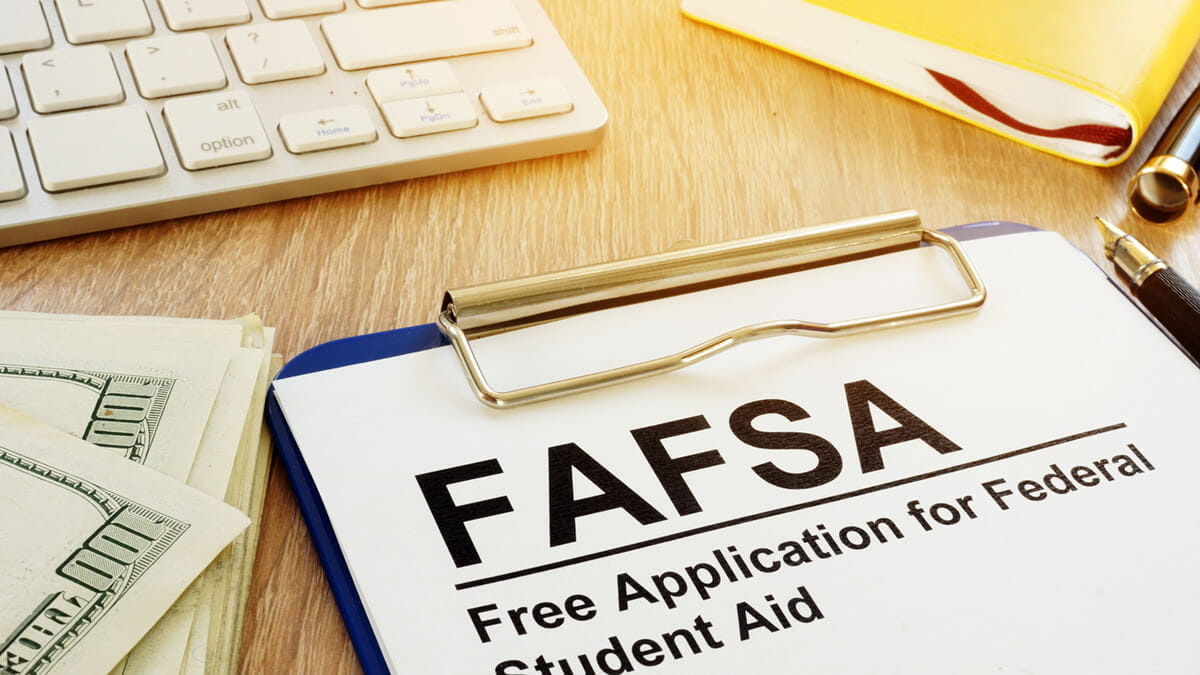Financial aid1 encompasses a wide spectrum of programs to help you pay for education expenses at accredited colleges and universities. Financial aid can come from federal programs, state programs, your chosen college, and even private and nonprofit organizations. There are so many options with the process of understanding federal financial aid and what is best for you may feel overwhelming.
During the 2016–2017 academic year, 85% of all first-time, full-time undergraduate students pursuing a 4-year degree received financial aid, according to the National Center for Education Statistics (NCES).2
Types of Federal Financial Aid
When you apply for federal financial aid, you are receiving assistance from the federal government to help pay for the educational expenses of going to a college, university, or technical/career school. In fiscal year 2019, the U.S. Department of Education processed more than 18.0 million FAFSAs, resulting in the delivery of approximately $121.8 billion in federal financial aid to over 10.4 million postsecondary students and their families for on-campus and online university degree programs, including:3
- Federal Grants – This type of financial aid is awarded based on need and does not have to be repaid. There are several kinds of federal grants:
- Federal Pell Grants are usually awarded to undergraduate students who display exceptional financial need.
- Federal Supplemental Educational Opportunity Grants (FSEOG) are awarded to undergraduate students, based on the individual student’s financial needs, as well as the availability of funds at the college.
- Teacher Education Assistance for College and Higher Education (TEACH) Grants are awarded to students who are planning to teach in private or public elementary or secondary schools that service low-income families. If the student does not fulfill this obligation, the grant could turn into a loan and will have to be repaid in full by the student.
- Iraq and Afghanistan Service Grants are awarded to students whose parents or guardians died while serving in the U.S. Armed Forces in Iraq or Afghanistan after September 11, 2001. To qualify, the student must have been either enrolled in college (at least part time) or under 24 years of age at the time of their parent’s or guardian’s death.
- Federal Loans – This type of federal financial aid for students must be repaid (with interest) within a specific time frame upon completion of the college degree program.
- The William D. Ford Federal Direct Loan Program allows students and parents to obtain low-interest loans directly from the federal government. There are four types of Direct Loans available:
- Direct Subsidized Loans are loans for eligible undergraduate students who demonstrate financial need to help cover the costs of college. Subsidized means the federal government pays the interest on the loan while the student is in college.
- Direct Unsubsidized Loans are loans made to eligible undergraduate, graduate and professional students. Eligibility is not based on financial need. Unsubsidized means the student is responsible for paying the interest on the loan while they are in college.
- Direct PLUS Loans are loans for graduate or professional students and parents of dependent undergraduate students to help cover the college costs that are not covered by other financial aid. Eligibility is not based on financial need, but a credit check is required. Borrowers who have adverse credit will need to meet additional requirements to qualify.
- Direct Consolidation Loans allow you to combine all your eligible federal student loans into one loan with one loan servicer.
- The William D. Ford Federal Direct Loan Program allows students and parents to obtain low-interest loans directly from the federal government. There are four types of Direct Loans available:
Accreditation and Federal Financial Aid Programs
An essential requirement of federal financial aid programs and some state programs is that the chosen college degree program must be accredited by a reputable and recognized accreditation organization. The U.S. Department of Education will only approve financial aid for accredited college degree programs. Accreditation ensures that universities and colleges meet a rigorous and consistent level of academic standards across their degree programs. When applying to on-campus or online university degree programs, please be sure that the university and your degree program of choice are both fully accredited.
Walden University, for example, is accredited by The Higher Learning Commission and certified by the U.S. Department of Education as eligible to participate in offering a variety of federal financial aid programs to its students. By providing millions of dollars in financial assistance through scholarships, grants, tuition savings opportunities, and a generous transfer of credit policy, Walden helps students attain their goal of earning an online bachelor’s degree or graduate degree.
Financial Aid Specialists at Walden University
At Walden University, we understand that your education is a major financial investment. We know it’s important for you to gain a thorough understanding of federal financial aid options in order to benefit the most from the assistance.
Explore your financial aid options at Walden University. Visit Walden Grants, Scholarships, and Tuition Savings or speak to an Enrollment Specialist by calling 855-646-5286.
Walden University's financial aid programs will help you achieve your career goals while you earn your degree at a pace that fits your life and schedule.
1For Washington State residents seeking information and resources about student loan repayment or seeking to submit a complaint relating to your student loans or student loan servicer, please visit www.wsac.wa.gov/loan-advocacy or contact the Student Loan Advocate at [email protected].
2Source: https://nces.ed.gov/fastfacts/display.asp?id=31
3Source: https://www2.ed.gov/about/reports/annual/2019report/fsa-report.pdf
Walden University is accredited by The Higher Learning Commission, www.hlcommission.org.




